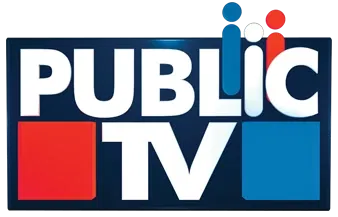NEW DELHI: The Supreme Court on Thursday said that promising and distributing freebies by political parties during elections is a “serious issue” and that the money has to be spent on infrastructure, etc.
A bench of Chief Justice of India NV Ramana and Krishna Murari said the economy losing money and the welfare of people, both have to be balanced.
“Economy losing money and welfare of people, both have to be balanced. That is why this debate and there must be someone who can put their vision and thoughts. Please submit something,” the bench told the parties in the case.
The apex court was hearing a plea seeking direction to seize election symbols and deregister political parties that promised to distribute irrational freebies from public funds.
“It’s a serious issue. People who are opposing have a right to say that they are paying tax. The amount has to be spent for infrastructure, etc., and not on distributing money,” the CJI said. “It’s definitely an issue of concern and financial discipline has to be there. But in a country like India, where there is poverty, we can’t ignore that issue,” the CJI said, adding that the issue requires discussion.
The CJI also said that he is “strict orthodox” and doesn’t want to encroach on the areas meant by the legislature.
Senior advocate Abhishek Manu Singhvi, appearing for Aam Aadmi Party, opposed the PIL saying there is confusion between giving freebies and welfare schemes, and this word freebies is used in the very wrong manner.
Singhvi said welfare measures are a political bargain which is done between the electorate and the elected. “Thus, we have formulated the universal adult franchise. Judicial reassessment makes the court enter into the political thicket which courts have refused to do earlier,” he added.
To this, CJI replied, “That is why we are cautious and we expressed reservation to what extent we can go. You cannot tell us that don’t examine this.”
The AAP had filed an application stating that electoral promises such as free water, free electricity and free transport are not ‘freebies’ but these schemes are absolutely essential in an unequal society.
Solicitor General Tushar Mehta, appearing for Centre, told the bench that if distributing freebies is only way to achieve welfare, then it is a road to economic disaster. He suggested that till the time legislature does anything on freebies, the Supreme Court can lay down guidelines.
On the petitioner’s request for de-registration of political parties promising freebies, the CJI said he doesn’t want to enter the area of de-registering political party etc., as it’s an “undemocratic arena” and “we are a democracy after all”.
The bench now posted the matter for further hearing on August 17.
The Election Commission, in an affidavit filed on Thursday, supported the top court’s decision to set up an expert committee to examine regulatory measures on freebies announced by political parties ahead of elections, but declined to be part of the panel.
It took strong objections to the Supreme Court’s remarks portraying it to be non-serious about the problem of freebies promised and distributed by the political parties.
Declining to be part of the expert body, the poll panel took objection to the apex court’s oral observations during a hearing where it had said that if the Commission had taken steps, this problem would not have arisen. The Commission said the remarks caused “irreparable damage” to its reputation built over the years.
“It may not be appropriate for the Commission, being the constitutional authority, to offer to be part of the expert committee, especially if there are (representation from) ministries or government bodies in the expert committee. Further, there are continuous elections in the country and any opinion/view/comment during deliberations in a multi-member body might, in the event of it being publicised, amount to pre-deciding the issue and disturb the level playing field,” the poll panel has stated in the affidavit.
The Commission pointed out that it was the Supreme Court, in its 2013 judgment, which had held that promises made by political parties and candidates in their manifestos could neither be construed as a corrupt practice under Representation of the People Act nor a violation of a level playing field (Article 14).
Earlier, the top court had observed that political parties promising to distribute freebies is a “serious economic issue” and said that there is a need for a body to examine the issue.
There is a need consisting of NITI Aayog, Finance Commission, ruling and opposition parties, Reserve Bank of India, and other stakeholders to make suggestions on how to control freebies by political parties, the bench had said.
It had asked the Central government to take a stand on the need to control the issue of political parties promising to distribute irrational freebies. It had also asked the Centre to consider whether the suggestions of the Finance Commission can be sought for a solution.
The CJI had also sought opinion of senior advocate Kapil Sibal, who was present in court for some other matter, on freebies by political parties.
“It’s a serious issue, but difficult to control politically. When the Finance Commission does allocation to various states, they can take into account the debt of the state and the quantum of freebies. The Finance Commission is the appropriate authority to deal with it. Maybe we can invite the Commission to look into this aspect. The Centre cannot be expected to issue directions,” Sibal had said.
The ECI had told the apex court that it was held in previous judgments that a manifesto was part of the promises of a political party and suggested that the Central government could bring in a law to deal with the issue.
Advocate Ashwini Upadhyay, who filed the plea, had claimed that political parties’ arbitrarily promises or irrational freebies for wrongful gain and to lure voters in their favour is analogous to bribery and undue influences. He claimed that promise or distribution of irrational freebies from public funds before elections could unduly influence the voters, shake the roots of a free and fair election, and disturb the level playing field, besides vitiating the purity of the election process.
The petition stated that unfortunately, freebies are not connected with job creation, development, or agriculture and voters are lured to cast votes in their favour by magical promises. It has become fashion for the political parties to announce free electricity in their election manifesto though the state has not been able to provide electricity for more than 16 hours and a large population doesn’t even have access to electricity which has been recognized as a fundamental right, the petition added. (ANI)


